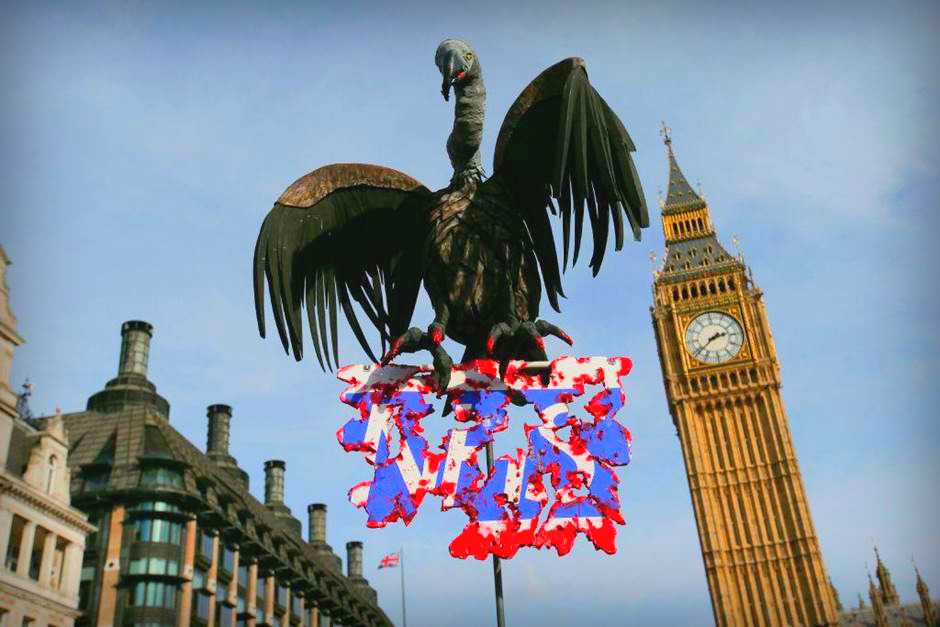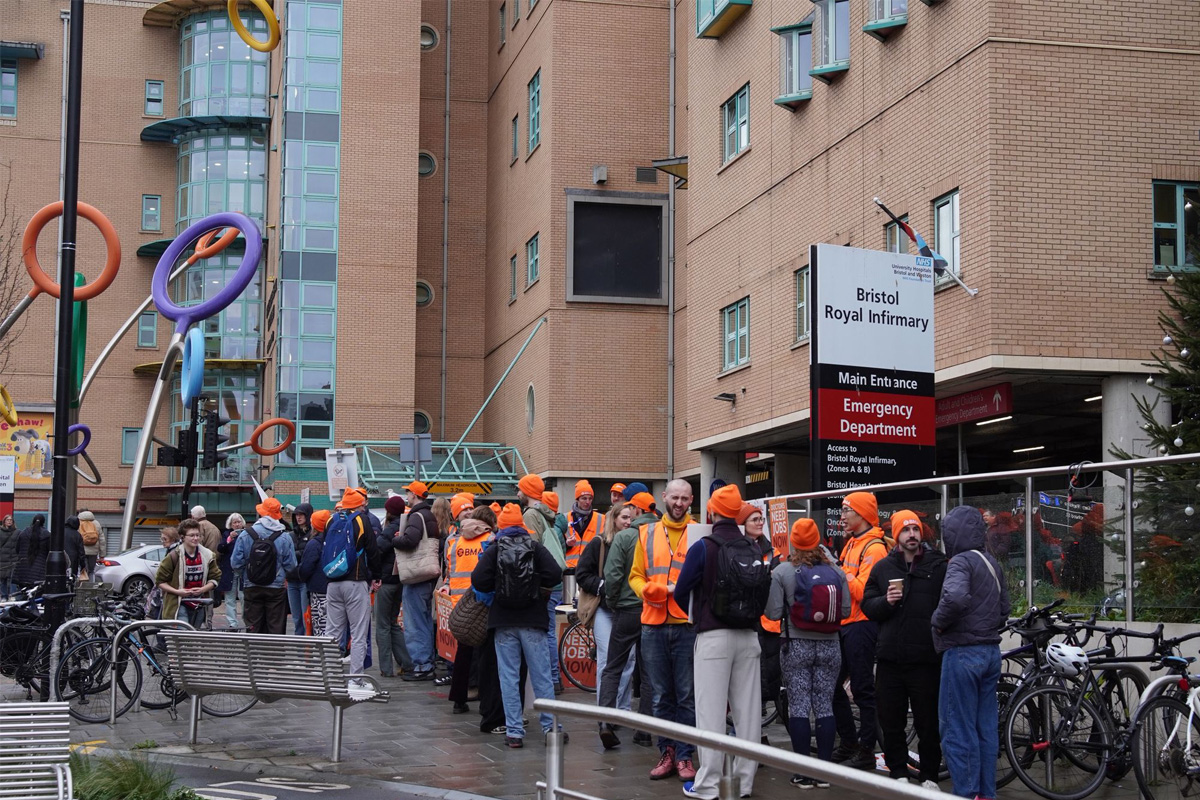Nurses in the North of Ireland have faced attacks on working conditions, putting patients at risk. The Department of Health claims there is no money for pay increases, but the government found £1bn to bribe the DUP. We support this historic strike.
“Despite claims to the contrary, there is no separate or untapped source of funding for pay increases.”
This is the dismal and repetitive excuse given by the Department of Health, as nurses in the North of Ireland prepare for a historic strike over pay and the ever mounting staffing crisis. This comes after rounds and rounds of failed negotiations.
What makes this historic is that it’s the first time in its 103 year history that the Royal College of Nurses (RCN) is taking industrial action to this degree. The RCN leadership was unable to hold back the tide, as it has done in the past, as the rightful anger of the nurses could not be ignored.
Massive support
 The RCN had a 43% turnout wherein a huge 96% voted in favour of industrial action short of a strike and 92% supported outright strike action. As the draconian anti-trade union laws don’t apply in the North of Ireland, this represents a massive mandate for strike action. The British Medical Association (BMA) has offered solidarity, and nurses will hope to see the doctors on the picket lines that are set for December.
The RCN had a 43% turnout wherein a huge 96% voted in favour of industrial action short of a strike and 92% supported outright strike action. As the draconian anti-trade union laws don’t apply in the North of Ireland, this represents a massive mandate for strike action. The British Medical Association (BMA) has offered solidarity, and nurses will hope to see the doctors on the picket lines that are set for December.
As the nurses gear up for the 18 December twelve-hour strike, they will, from the 3 December refuse non-patient specific tasks whilst at work. This includes cleaning and changing empty beds, overtime or bank work, doing extra hours, additional paperwork, answering phones, delivering blood samples, admin tasks, collecting prescriptions and attending meetings. This action will continue into March 2020 If their demands are not met.
Poor working conditions
Nurses in the North of Ireland are paid less than nurses across England, Scotland and Wales. They are also having to work in short-staffed conditions where there are 3,000 nursing vacancies in Health and Social Care Northern Ireland (HSCNI). Their humble request at negotiations was little more than to have their wages brought in line with other nursing staff!
The annual health budget for the North of Ireland is currently £5.6bn. Some experts have noted that it would only take £18 million to have pay parity with the rest of the NHS.
Bosses lie through their teeth and claim there is no money, yet there was a billion to waste on bribing the DUP! Where has this money gone? We were told that much of it would be spent on the HSCNI. Yet today it is not uncommon to have to wait four years for a first outpatient appointment in the North of Ireland. In some areas patients are even forced to wait as long as two years for urgent consultations.
Beyond the Department of Health’s excuses have come a whole host of cynical smears. Media outlets scream about the effect this will have on patients. Strikes inevitably affect patient care. The decision to strike has been extremely difficult for nurses whose first instinct is one of care and compassion for their patients. The pressure on nurses must be extreme for them to take such action.
Austerity
 Let us be under no illusion, it is not nurses who are responsible for the impact on patients. Chronic underfunding and low pay have driven thousands out of the profession, leading to dangerous staffing levels that are only getting worse. Strike action and working class solidarity is the only weapon nurses and healthcare staff have to stop this slow death of the NHS.
Let us be under no illusion, it is not nurses who are responsible for the impact on patients. Chronic underfunding and low pay have driven thousands out of the profession, leading to dangerous staffing levels that are only getting worse. Strike action and working class solidarity is the only weapon nurses and healthcare staff have to stop this slow death of the NHS.
The DoH has replied to workers wanting a decent wage and safe working environments by threatening more cuts to accommodate a miniscule pay increase. They would prefer to continue down the same path that led to this situation to begin with, jeopardising patient care, and destabilising the HSCNI further. This is the logic of an economic system in crisis with no way out.
The crisis in our profession, whether it’s staffing, bursary cuts in England and Wales, low pay, bullying from senior management, etc., has seen more than 305 exhausted and burnt out nurses from across the UK, commit suicide between 2011 to 2017, to escape the misery of capitalism. This harrowing figures means nurses, especially women nurses, are 23% more likely to commit suicide than the national average.
Solidarity
Unison has also successfully balloted allied health professionals in the North of Ireland over issues of pay and safe staffing, their first strike took place on 25 November. Unison and the RCN must unite in common struggle to gain maximum impact.
Healthcare staff working in sterile services at Antrim Area Hospital among the first to walk out as part of unison strike action pic.twitter.com/WHs8j6B64K
— Jordan Moates (@jordan_utv) November 25, 2019
This fight can act as a catalyst to build union unity and raise the question of a single union for all health workers, cutting across the divisions of old and providing militant solidarity across the industry. Health workers across Britain and Ireland must give solidarity to those RCN and Unison workers taking action in defence of decent pay and conditions. Their fight is your fight!
A strike of nurses in the South of Ireland earlier this year got overwhelming support from across the working class, despite media slanders. In fact such was the support that it threatened to burst the dam of public sector anger that had accumulated over years of pay restraint. In the North too, this strike will show what huge sympathies and reserves of support exist for the nurses among ordinary people. Were they to be given a militant lead, the nurses could blaze a trail for hundreds of thousands of public sector workers and mark the beginning of a coordinated fightback against capitalist austerity and a Tory regime that tramples workers underfoot.






